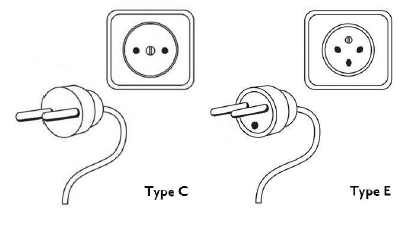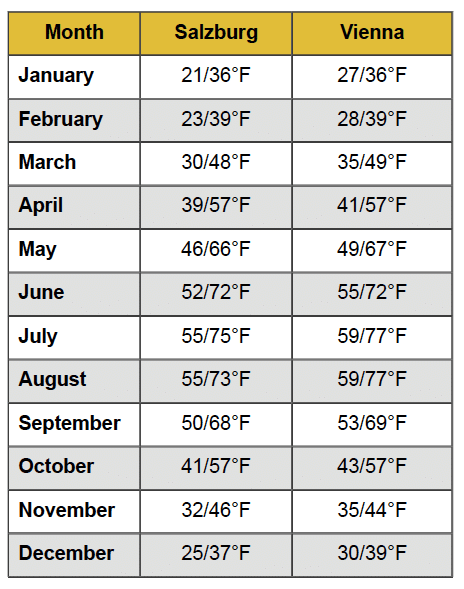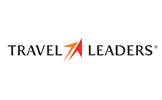AUSTRIA

Fun Facts From Globus Tours
- The German name for Austria is Österreich, which means “Eastern Empire,” referring to the time when Austria was a part of the Holy Roman Empire
- Austria is the only continental European Union country that is not a member of N.A.T.O.
- About one-fourth of the population of Austria lives in Vienna
A small Alpine jewel lying at the heart of the European Continent, Austria welcomes visitors with vistas of evergreen forests, magnificent mountains, sparkling lakes, quaint villages, popular summer and winter resorts, magnificent castles, and grandiose palaces and cathedrals.
With a population of 8.7 million and a territory of 32,000 square miles, it covers part of the eastern Alps and the Danube region. The country’s few cities have preserved their centuries-old charm and the threads of European history running through their cobbled lanes and graceful boulevards. Vienna, for more than 600 years the capital of a mighty empire stretching from the Netherlands into Eastern Europe and the Mediterranean, has attracted and inspired countless brilliant citizens through the ages. Famous scholars, architects, scientists, painters, and composers have left their imprint on this city, which like no other blends the best of the past with all the benefits of the modern age. Its beautiful concert halls still resound with some of the world’s best classical music by Mozart, Haydn, Schubert, and members of the Strauss dynasty. The Vienna Boys Choir and the Spanish Riding School continue to draw crowds. While the Burgtheater ranks as Europe’s leading German-speaking playhouse, violins and accordions create a nostalgic atmosphere in cozy wine taverns in the Vienna Woods. Tyrolean mountain-folk like it more boisterous. Their colorful brass band folklore shows are not to be missed.
The economy is healthy, and Austria is one of the most affluent European Union countries. Its best-known exports are high-tech machinery, the Sound of Music spirit, and… Arnold Schwarzenegger! Austrian lifestyle is generally described as gemütlich – literally untranslatable – but closely meaning cozy, agreeable, and comfortable; it’s not a bad philosophy.
VISAS, PASSPORTS, AND OTHER ENTRY REQUIREMENTS
Visas to Austria are not required for US citizens. If you hold a passport from another country, please check with your local consulate about requirements for travel to Austria. All passengers traveling internationally are required to have a passport. Please carry proper identification (your passport) on you and do not leave it in your suitcase or hotel room.
It is advisable to carry your passport with you at all times.
COUNTRY CODES
The country code for Austria is 43. When calling to Austria from overseas, dial your international access code (011 from the US/Canada), followed by the country code, area code, and phone number. Phone numbers in Austria are 5-13 digits in length. Dialing from the US/Canada: 011 43## ####.
CURRENCY
The official currency of Austria is the Euro. Bank hours: 8 a.m. to 3 p.m., with a one-hour lunch break, Monday through Friday. Some branches stay open until 5.30 p.m. Thursdays.
Euro coins differ according to country, but they can be used in any Eurozone state. Bank notes are of uniform EU design (depicting European architectural styles throughout seven ages, from Classical to Modern times).
1 EURO (€) = 100 Cents (c)
- Banknote denominations: €5, €10, €20, €50, €100, €200, €500
- Coin denominations: 1c, 2c, 5c, 10c, 20c, 50c, €1, €2
For the most current exchange rates, please go to our website at Globusjourneys.com/Currency.
Credit cards are widely accepted (mostly Visa and MasterCard), and you should have no problems using them in larger shops and restaurants.
Smaller shops may ask you to pay in cash or have a minimum amount required to use a credit card.
BUDGETING AND SHOPPING
The following budget guidelines are just approximate values or starting values for meals and are per person. Actual prices will vary widely by restaurant and city within a country but below are some averages as provided by our experienced personnel.
- The approximate cost of a soft drink/mineral water/coffee is €2-3.50.
- An average lunch consisting of a salad or sandwich and a soda or water starts at approximately €18.
- Dinner at a mid-range restaurant with dessert and a non-alcoholic beverage starts at approximately €35-50.
Please note that soft drinks and mineral water are often as expensive, if not more expensive than wine or beer.
Shopping specialties: Swarowski silver crystal, Viennese enamel jewelry, Geiger fashion.
Counterfeit and pirated goods are widely available; be aware that under local law transactions involving such products may be illegal, and bringing them home may result in confiscation and fines.
Sales tax or VAT (value added tax) is included on price tags. To obtain VAT refunds (which may take up to three months to process) special forms usually have to be stamped by Customs; please ask for a tax-free shopping form with each purchase and follow the instructions for completion. Customs import charges on items shipped home are not included in purchase prices.
TIPPING
For restaurant services a tip is expected. You must ask for the bill in Austrian restaurants, and often it is provided verbally by the server. When providing the amount to pay, include the tip. Rounding up the bill is generally enough tip or leave 10% of the bill if tip is not included. Saying “danke” (thank you) means “keep the change,” so always include the tip in the amount to be paid and ask for change back. For a taxi, a tip of 10% is recommended. Tip hotel staff €1 for room service.
ELECTRICITY AND ELECTRICAL OUTLETS
Outlets
Voltage for outlets is 230V. North American voltage is generally 110V. Therefore, you will need a converter for your travels. Adapters will be necessary to adapt your plug into the outlet, but these may not convert the voltage, so both devices are necessary. Austria uses a round, 2-prong plug that looks like:

TEMPERATURES
Austria’s summers are warm and sunny, often extending well into October. Winters are relatively mild, apart from the mountainous regions. Layers are your best option while traveling here, as weather can be unpredictable, especially in spring and fall. Rain wear is recommended year-round. Pack appropriate gear if you plan to hike or ski while visiting the Alps. To help you plan, below are average low and high temperatures for Austria.

To convert to Celsius, subtract 30, then divide by 2. While not exact, this simple formula will give a close estimation.
FOOD SPECIALTIES
Wiener Schnitzel, Sachertorte (supreme chocolate cake), and coffee.
FEW WORDS OF THE LOCAL LANGUAGE
German:
![]()
Good morning: Guten Morgen, Good Day: Guten Tag, Good evening: Guten Abend, Please/You’re welcome: Bitte, Thank you: Danke, Yes: Ja, No: Nein, Do you speak English?: Sprechen Sie Englisch?, I don’t understand: Ich verstehe nicht, Please write it down: Können Sie das bitte aufschreiben? How much?: Wieviel kostet das?, 1: Eins, 2: Zwei, 3: Drei, 4: Vier, 5: Fünf, 6: Sechs, 7: Sieben, 8: Acht, 9: Neun, 10: Zehn, Where is…?: Wo ist…?, Telephone: Telefon, Bathroom: Toilette, Tea: Tee, Coffee: Kaffee, Bottled water: Mineralwasser (carbonated=mit Kohlensäure, non-carbonated= ohne Kohlensäure), Cheers!: Prost!, Restaurant check/bill: Die Rechnung.
U.S. DEPARTMENT OF STATE COUNTRY INFORMATION
Additional country-specific information for US citizens can be found on the US Government’s website www.travel.state.gov. Here, you can find the most up-to-date information about destination descriptions, passports/visas, safety and security, transportation, travel local laws, alerts/warnings, vaccinations, and more. For citizens of other nations, we recommend you consult your local consulate for travel information, regulations, and requirements.









